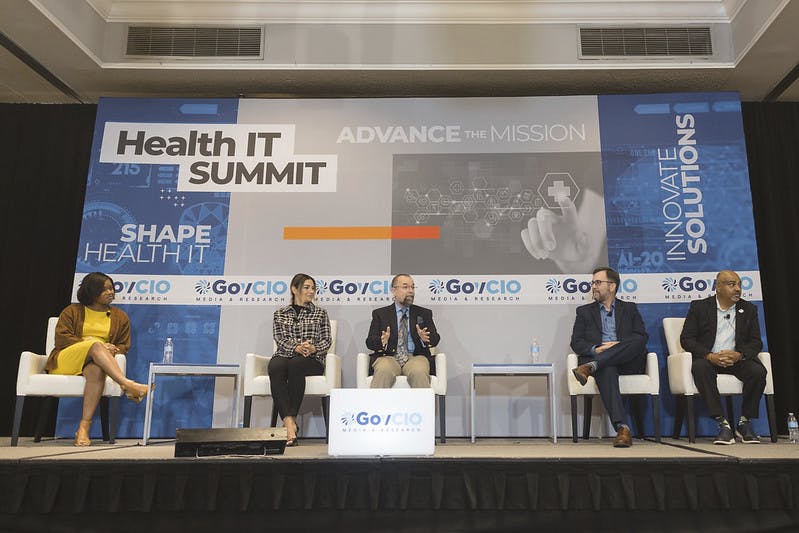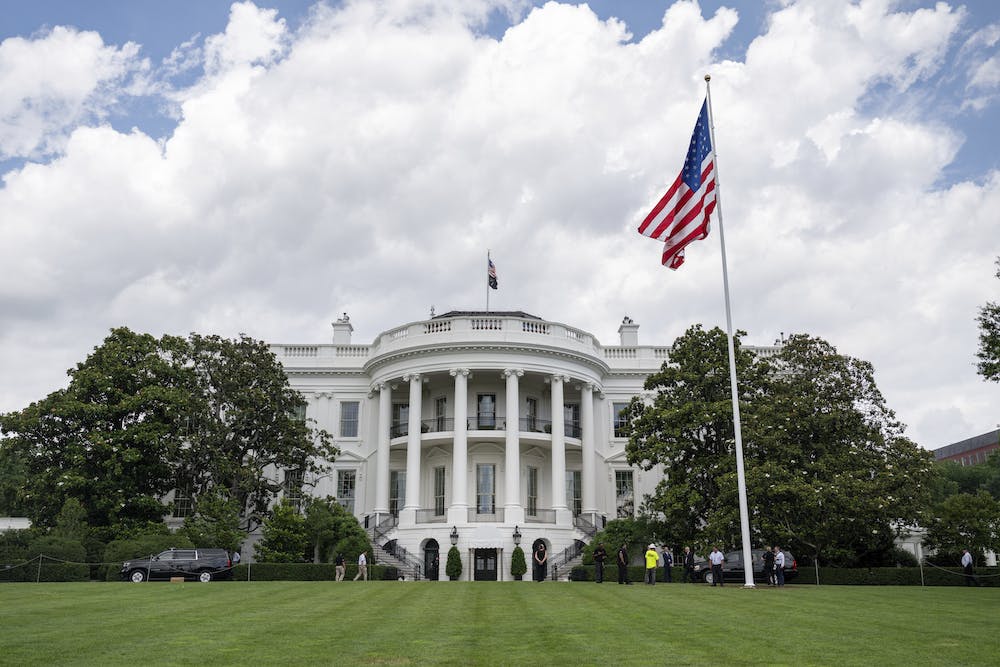Health IT Leads Talk AI Adoption Amid Challenges
Officials say the technology is poised to transform health care with the right investment.

Emerging technologies are having an overwhelming impact on patient care and health service delivery. For many government and industry leaders, artificial intelligence is top of mind.
“I’ve never seen quicker and more thoughtful uptake of an emerging technology in the government than I am seeing right now with AI,” said Sanja Basaric, AI program lead at the Department of Health and Human Services, at the Sept. 21 Health IT Summit.
Basaric said that there is a “culture of experimentation” as federal offices test out the benefits of AI that align with their missions. “That is huge,” she added.
In the health care ecosystem, AI can help at the operational and clinical level at scale. “[AI] benefits everything from natural language processing and helping reduce clinician burnout, to computer vision for image recognition and reducing clinical errors,” Basaric said.
However, the technology is faced with several challenges as leaders explore the best ways to use it responsibly and safely and to protect patient data.
“It’s a challenge because I am not an expert in that area, so some risks I can imagine, and some I know I can’t. That’s why I think conversations … with lots of different viewpoints and expertise are important,” Josh Fessel, senior clinical advisor at the National Center for Advancing Translational Sciences at the National Institutes of Health, said at the summit.
Additional challenges include the adoption of AI and the amount of experimentation that will take place. “How do you look at what is valuable and, again, take one or two of those and say, ‘This is my standard?’ And tailor it to 136 health care systems across the country,” said Ian Komorowski, acting chief consultant in the Office of the Deputy Under Secretary of Health at the Department of Veteran Affairs.
Consequently, as agencies invest in emerging technology, funding issues are an ongoing battle. Basaric said there needs to be a “shift in culture” in government for AI to reach its full potential throughout health care.
“Previously, we’ve had a really risk-averse culture in government and I think a lot of times, folks have had to prove ROI on a use case or on a project. And, you know, that it is difficult to do, especially with AI,” Basaric said. “I want to get us to a point where we’re talking more about a return on learning. Have we actually learned something from this, versus the actual bottom-line budgets?”
At HHS, Basaric said the agency is coupling AI instead of looking it at it separately. The agency, she noted, has included AI into its overall infrastructure.
“For it to be a transformational tool, it has to be embedded into actual infrastructure, actual agency operations,” she said.
As the risk of cybersecurity threats increase across the health care ecosystem, experts are concerned that the emerging technology will increase those threats even more.
“We’ve had malware, we’ve had disinformation, we’ve had doctored images for a long time, AI is going to accelerate some of those harms. But it’s also going to give us the tools to beat them quicker and faster,” Basaric said.
While challenges exist, the panelists said the good outweighs the bad. They also said that humans must stay in the loop.
“We’re talking about human lives and safety and the rights of Americans. We cannot get that wrong. There has to be a human that makes the final decisions for those important, impactful AI situations,” Basaric said.
This is a carousel with manually rotating slides. Use Next and Previous buttons to navigate or jump to a slide with the slide dots
-

Pentagon Leaders Must Give ‘Top Cover’ for Risk-Taking, DOW Official Says
Bonnie Evangelista says acquisition reform will fail without leadership support that allows for experimentation without penalty.
3m read -

Digital GI Bill Automation Speeds VA Benefits Delivery
VA officials said Digital GI Bill upgrades have improved claims speed, enabling the department to process benefits with fewer staff.
3m read -

Who’s in Charge of AI at Every Federal Agency
New AI memos from the Trump administration prompt federal agencies to establish chief AI officers and OMB to launch a new CAIO AI Council.
7m read -

Federal CIO: ‘The Shackles are Off’ for AI Innovation in Government
Federal CIO Gregory Barbaccia said the PMA encourages faster tech adoption, AI experimentation and simpler digital services for citizens.
3m read







